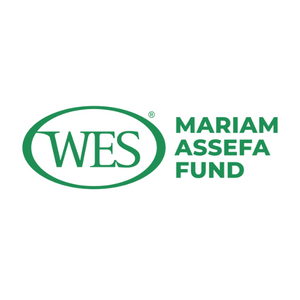Participatory Grantmaking Initiative
Funding Available To Support Initiatives for Migrant and Refugee Communities
A Grantmaking Initiative Led by and for Racialized Migrants
The Refugee Livelihood Lab is offering grants designed to support community initiatives led by racialized migrant and refugee communities in British Columbia (B.C.). We understand that many funding opportunities can be difficult to access. This grant aims to change that by providing transparent, accessible, and inclusive application support from our team so that you can get the funds needed to launch or expand your important work in community. If you are building a project that is rooted in community, embeds equity and inclusion, and creates meaningful change for migrant and refugee communities, we would love to find ways to collaborate with you.
Our 2025 grantees have now been selected!
Listed alphabetically:
Afiya Care Collective
Baobab Black Seniors Health & Social Care Services Society
Black Youth Initiative Society
Canadian Centre for Gender-Based Analysis Plus (CCGBA+)
Chinatown Organizing & Solidarity Language School
Damayan Society for Migrant Education and Resources (Damayan BC)
Earthseed Collective Society
Healing Together: A Group Counselling Initiative for Racialized Women International Students in Higher Education
Iyé Creative
Justice 48
Marpole Mutual Aid Network
Migrant Students United Vancouver (MSU)
Migrant Workers Centre
Supporting Women’s Alternatives Network (SWAN Vancouver) Society
SWANA Meetup + Podcast series
UPAABC (University of Philippines Alumni Association of BC)
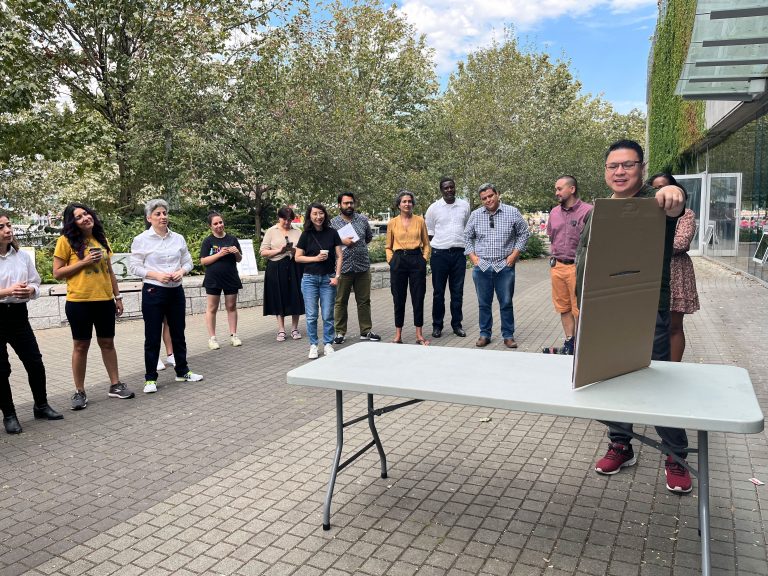
What is Participatory Grantmaking?
Participatory grantmaking is an approach where the decision-making power over where and how funds are allocated lies with the communities directly affected. We use this approach to challenge the traditional top-down funding models that often exclude marginalized and racialized voices. By placing racialized migrants at the forefront, this initiative ensures that those who understand the community’s needs best are the ones shaping solutions.
To learn about Participatory Grantmaking, read our announcement blog.
Participatory Grantmaking Initiative Outcomes
Boost community engagement in projects and initiatives
Boost community engagement in projects and initiatives
Strengthen long-term capacity in our communities
Strengthen long-term capacity in our communities
Develop effective and community-centered projects and solutions
Develop effective and community-centered projects and solutions
Ensure equitable resource distribution through inclusive decision-making
Ensure equitable resource distribution through inclusive decision-making
Contribute to knowledge on equitable resource allocation for racialized communities
Contribute to knowledge on equitable resource allocation for racialized communities
Grant Focus & Application
Organizations working in refugee and migrant-centered sectors can sometimes get stuck in the status quo, becoming part of the same systems that they are trying to change.
People, especially those with lived experience as migrants and refugees, leading new or ongoing grassroots and innovative initiatives that challenge systemic inequities find it hard to launch and go unsupported. These are the types of initiatives and projects this grant will support.
Through this grant program, we will offer flexible funding using simplified processes and minimal reporting requirements. You will also have access to support and advice on building a strong application. Successful grant applications will also receive support and advice on planning, implementation, and network building for a year after the grant has been disbursed.
Focus of the Projects
This grant will support projects or initiatives that tackle systemic issues experienced by racialized refugee and migrant communities in British Columbia.
Community-Centered Initiatives
We seek initiatives that:
- Are led by and for the community, and draw on the lived experiences and expertise of racialized migrants who intimately understand the challenges and opportunities within their communities.
- Center historically excluded and marginalized groups, ensuring that those who have been left out of funding opportunities have a chance to access funds.
- Include diverse voices and break down barriers to participation for marginalized groups.
- Recognize and embrace the intersectionality of identities and experiences, such as race, gender, faith, immigration status, and ability.
Welcome Both New and Existing Projects
- Whether your project is already running or just starting, this grant is for you. We want to support initiatives that need resources to keep growing or bring new ideas to life.
Types of Organizations
- We welcome applications from individuals, collectives, grassroots groups and organizations (including non-profits, social enterprises, co-operatives, etc.)
- Formal registration or prior grant application experience is not required – we value your passion, community experience, and ideas, and will be supportive along the way.
Grant funding is intended for use between April 2025 – March 2026, but we are open to discussing adjustments if needed.
Flexible funding: We trust you to know what’s best for your project or initiative. The grant funding comes with few restrictions and can cover different costs related to programming, operations, etc.
Simplified processes: Our application process is simple – just a 1-2 page application. You can apply through writing, audio, or video – whichever works best for you. We don’t need academic-level language or a rigid writing structure, and English fluency will not affect our decision.
Minimal reporting: We want you to focus on your work, not paperwork. Reporting will be minimal and focused on the appropriate use of grant funds. We do not expect extensive impact reports and will work with you to find the best way to share your progress and story with us.
Application support: We are here to help you create a strong application. Each week during the application period, we will host open office hours and individual online support sessions to answer questions and support you with thinking through your project or initiative.
Post-Grant Support to Grantees: For a year after disbursement, our team will offer advice and support on project planning, implementation, network building, and finding additional resources.
You do not need to be solidly established or have multiple funders confirmed already. We value your knowledge, wisdom, and ways in which you show up in and for your communities.
We offer three types of grants, open to individuals, groups/collectives, registered nonprofits and charities, and social enterprises.
For social enterprises considering applying for the grant, we would like to emphasize the importance of being an enterprise that is clearly addressing challenges faced by racialized migrant communities in British Columbia and is focused on shifting systems that create these issues.
For non-registered individuals and groups, please review the “Tax-related Implications” section below.
All grant amounts are available to new and ongoing projects or initiatives. We have also listed the number of grants available in each category. While the final allocation may vary, we believe it can be helpful to know this information to guide your decision on the amount to apply for.
Small Grants: $10,000 – $20,000 | 8 – 10 grants offered
Medium Grants: $20,000 – $60,000 | 6 – 8 grants offered
Large Grants: $60,000 – $80,000 | 2 grants offered
Some Advice regarding Grant Amounts:
Here are some of our recommendations for which grant sizes might suit different types of initiatives. These are not mandatory requirements and you are welcome to apply to any of the three grant types. In case the decision-making group makes a decision to fund a different amount than what you apply for, we will have a conversation with you on ways to manage that.
- If you are new to developing your project or are just starting your initiative, we recommend applying for the Small Grants level.
- For new social enterprises that have been established within the last 1-2 years, we also suggest the Small Grants level. These enterprises should be created by and for racialized migrant communities and focus on addressing challenges faced by migrants and refugees.
- For grants over $20,000, individuals should be mindful of potential tax implications. In these cases, we encourage you to apply with or in partnership with a group or collaborators to help manage this.
- For Large Grants level, we recommend applicants to be registered organizations to better handle the funding and tax responsibilities of larger amounts.
If you are applying as an individual, please note that grant funds may be considered taxable income under Canadian tax laws. We recommend consulting a tax professional to understand how this might affect your financial situation.
If you receive funding, we can guide you to resources to help you navigate tax requirements. Additionally, we can guide you to resources to explore options for formal registration, which could help mitigate certain tax implications depending on your project’s structure and goals.
Applications: Grant applications will be open from December 3 until February 3rd, 2025 at 10 am.
Grant Decision-Making: Grant Decisions will be made by the decision-making group by March 17th, 2025 and shared with applicants by March 31st, 2025
Final Steps and Fund Disbursement: Between March and May 2025, our team will work with you on the fund disbursement process which will include a finalized project budget and any documentation needed to transfer the funds.
Grantee Support and Regular Check-ins: Between April 2025 – March 2026 our team will provide support and advice on project planning, implementation and making connections to additional resources to help advance the grantee projects or initiatives. During this time we will also bring all the grantees together to share learnings, support each other, and explore areas of collaboration.
All granting decisions will be made by a decision-making group composed of community members with support from the Refugee Livelihood Lab team.
The decision-making criteria includes the following areas:
- Refugee and migrant leadership with a focus on shifting power dynamics and systems change
- Centering migrant voices and intersectional identities with a focus on community care, reciprocal relationships, and collective liberation
- Embedding an equity-centered approach and practicing community accountability
- Awareness of your capacity to carry out initiative/project goals and limitations
- Budget clarity and commitment to inclusive compensation
The detailed decision making criteria can be downloaded alongside the application questions in the section below.
The application format can be one that best represents your work, whether that’s written, audio, or video. This could also include repurposing a previously prepared application for another funding opportunity and submitting it to us without any major edits.You can submit your application in one of the following four ways:
- Submit Online Form
- Email Written Submission
- Email Video/Audio Submission
- Email a previously prepared application
All submissions should be made in English. We do not expect academic quality writing and english fluency is not a factor in our decision-making criteria. At this time, we are unable to provide any translation support to potential applicants.
All applications must be received by 10am on February 3rd, 2025.
You can download the detailed application instructions, questions and the decision-making criteria here:
- Application Questions for Small Grants ($10,000 – $20,000) | PDF | Doc
- Application Questions for Medium and Large Grants ($20,000 – $80,000) | PDF | Doc
If you have questions about the application or would like to explore a different method of sharing your story and application with us, please reach out to us at this email ssharma@radiussfu.com.
We also encourage you to attend one of the information sessions or take advantage of the applicant supports offered below.
We know that applying for grants can feel overwhelming, especially if you are new to the process. To make this opportunity as accessible as possible, a member of our team is available to guide you through the application process. Whether you need help with submitting your application or have questions, we are here to assist you. We are excited to learn about your work and support you in making a meaningful impact in your community.
Please note that attending these sessions or meeting with our team is not required and will not affect the decision on your application. As noted above, all application decisions will be made by an external group of community members.
Information Session
Sign up for an Information Session either December 13th (12 – 1 pm) or December 19th (12 – 1 pm).
Virtual open office hours
Open to anyone without appointment – Weekly on Mondays (12 – 1 pm) and Tuesdays (5 – 6 pm) from December 16th – January 31st. Please note, that since these are open office hours, they might have multiple people attending at the same time.
Join on Zoom – https://sfu.zoom.us/j/2407628222
Note: Office hours will not be offered during the week of December 23rd and the week of December 30th.
Individualized Application Support
Alia Sunderji, the Entrepreneur-in-Residence Mentor at Radius, will be offering individualized guidance and support to applicants during the application period on building their application.
Sign-up to meet with Alia here: https://calendly.com/aliasunderji
In case the above sessions or timings do not work for you, please reach out to Shikhank Sharma (ssharma@radiussfu.com) or Yara Younis (yyounis@radiussfu.com) to ask questions or to schedule a time to meet.
Changemakers: A person that uses ideas, energy and determination to create positive change in the community by addressing social problems, removing barriers, and improving the lives of others.
Collective Liberation: A belief that all solidarities and causes are ultimately tied together. Collective liberation acknowledges that multiple oppressions exist, and that we work in solidarity with each other to undo oppression in ourselves, our families, our communities, and our institutions, in order to achieve a world that is truly free for all. (Definition adapted from Center for Racial Justice in Education.)
Co-operative: A co-operative (“co-op”) is a business owned and controlled by the people who use its services. Co-ops are registered organizations and can be either non-profit or for-profit. (Definition adapted from BC Co-op Association.)
Equality vs Equity vs Justice: Different from “equality”, in which everyone has the same amount of something (food, medicine, opportunity) despite their existing needs or assets, equity is about each person getting what they need to thrive. Justice could be said to seek a deeper improvement, with the fundamental removal of factors which create inequalities in the first place.
Equity-Centered Approach: A framework that embeds fairness and inclusion in decision-making, design, and implementation, actively challenging systemic inequities.
Grassroots Projects: Local or community-led efforts that challenge mainstream systems and narratives to create meaningful change.
Inclusion: Creating spaces where everyone feels accepted, valued, and empowered to contribute. It also means providing equitable opportunities for participation and success for people of different identities, backgrounds, and abilities.
Intersectionality: Racialized migrants and refugees often hold multiple intersecting identities, such as being queer, gender diverse, neurodiverse, spiritually diverse, belonging to specific class backgrounds, and so on. These overlapping identities can create unique challenges in accessing settlement and other services that adequately address their specific circumstances and needs.
Power dynamics: It shows how the power is held by people or certain groups. It relates to who has more control or influence in a situation and who has less. Power dynamics show how systems (like the government, business, or schools) treat people differently based on factors like race, gender, or economic status.
Racialized migrant & lived experience: A person that has first-hand experience of migrating to Canada through different pathways (express entry, asylum seekers, temporary workers, etc.) AND identifies with a community background that has been historically and persistently marginalized. They could be recently settled, such as newcomers, or have already spent a few years in Canada. We specifically mention the term “racialized” to signify the socially constructed and political systemic processes that result in greater inequities and higher instances of racism experienced by certain migrants from certain cultural/ethnic backgrounds.
Social enterprise: Businesses that sell goods or services in the marketplace, social enterprises have a social, cultural, and/or environmental purpose; and they reinvest the majority of their profits or surplus to maximize their social mission. Social enterprises can be operated by non-profit organizations or operated as a for-profit business. (Definition from Social Enterprise Council of Canada.)
Systems change – Creating long-term, transformative impacts by challenging existing social, political, or economic structures. Intentional systems change is a process designed to change the status quo by shifting the purpose or function of an identified system. It aims to bring about lasting change by altering underlying structures (such as policies, routines, relationships, resources, power structures, and values) which make the system operate in a particular way.
Status quo: The way things are right now. It points out how practices are done usually, or how things are in a certain place or time.
Tokenizing: The practice to include a person from a marginalized group (such as racialized immigrant) in a setting, to appear diverse or inclusive without genuinely addressing their needs, perspectives, or contributions.

Participatory Approach to Grant Design and Decision-Making
This initiative is designed by a working group of racialized migrant community members, leaders, organizers, and changemakers. Our approach in the design and development of this initiative is guided by the Liberatory Design framework and principles. This allows us to:
- Focus on building self-awareness as designers to question and break biases, norms and assumptions that perpetuate inequities
- Actively shift power dynamics and center the voices of those affected by inequities
- Be able to learn throughout this process while building agency, trust and comfort for decision-making
- Find ways in which we can shift narratives and systems to create conditions for ‘collective liberation’
The Participatory Grantmaking Initiative will run in four phases:
A working group determines the focus of the grants, process for individuals, support for applicants, decision-making criteria, post-grant support, and measurement of outcomes and impact.
This phase includes information sessions, targeted outreach to various stakeholders, and support for potential applicants to build strong applications.
A decision-making group reviews applications, makes decisions on fund disbursement, and conveys those decisions.
This phase provides ongoing support to grantees through cohort-based activities, community building, tailored connections with advisors, in addition to learning and tracking of experience in the initiative and impact/outcomes achieved.

Want to support this project?
We are thankful to the WES Mariam Assefa Fund for their partnership in setting up this initiative. We welcome interest from funders who would like to learn more about this initiative and explore potential partnerships.
Please reach out to Yara Younis (yyounis@radiussfu.com) and Shikhank Sharma (ssharma@radiussfu.com) with any questions or to learn more about this initiative.
Stay up-to-date on this initiative
To receive email updates about the Participatory Grantmaking Initiative, sign up below.
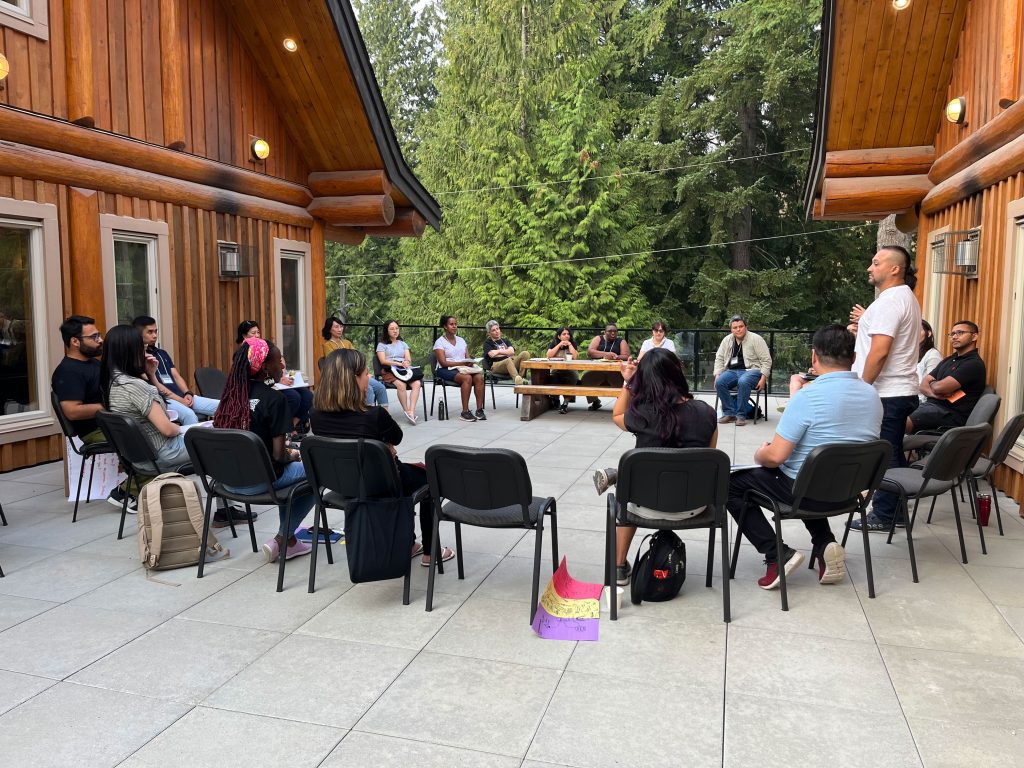
Meet the Grant Design Working Group
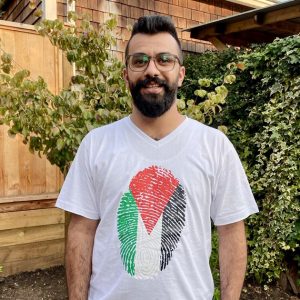
Mohammed (he/him) is a passionate advocate for refugee rights and social justice, born and raised in the Al Nuseirat refugee camp in Gaza, Palestine. He holds an honors degree in Business Administration and Accounting from the University of Palestine. Since relocating to the unceded lands of the Coast Salish peoples, Mohammed has dedicated himself to advocating the rights of refugee claimants, particularly in the areas of housing, employment, and belonging.
As the Transforming Employment Narratives Project Coordinator at Kinbrace, Mohammed leverages his professional and lived experience to push for systemic change and justice. He actively addresses the economic challenges faced by racialized migrant youth through his involvement with Solid State Community Industries, where he works towards creating a solidarity economy and building cooperatives.
Mohammed is also the Director of LightWork Consulting Cooperative, a worker’s co-op committed to fostering justice and belonging by creating safer, more inclusive, and diverse work environments. Additionally, he serves as a Community Advisor with the Vancouver Foundation, Youthful Cities, and RADIUS-SFU, where he provides programming, engagement, and consultation services. Through these roles, Mohammed continues to be a strong voice for marginalized communities, advocating for a fairer and more equitable society.
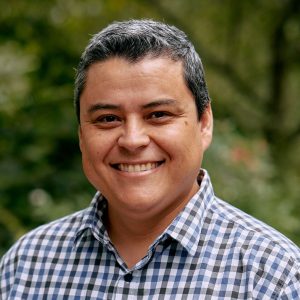
Jorge arrived in Canada at the end of 2021 with his wife and daughter. He studied law in his native Nicaragua and a master’s degree in nonprofit management in Spain.
He worked for ten years in the management team of a university and taught some law courses. At the same time, he collaborated for three years with the Organization of American States as local coordinator of a program on culture of non-violence, digital media and arts for social dialogue.
Since 2017, he works for a US non-profit organization running wellness programs for artisans, conducting some impact investment evaluations and managing relationships with more than a dozen organizations in Nicaragua and Guatemala. He is also part of an organization that advocates for immigrant rights in Canada, primarily in the agricultural sector.
He loves to walk, talk and spend time with his friends and family. He currently lives in Penticton with his family.
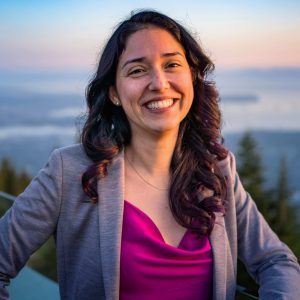
Mayra is a non-disabled, cisgender, heterosexual settler located on the unceded traditional territory of the Musqueam speaking people. She is a racialized, Mexican, immigrant from Colima, where she lived before moving to so-called Canada. Mayra has lived experiences with racial trauma, depression, and anxiety. She understands the complexities of navigating mental health challenges and connection between them and systemic oppression.
Mayra has facilitated connection and resiliency with diverse community members who have faced complex barriers by supporting them through her work and volunteering in non-profits, higher education settings, and social services organizations.
She recently graduated as a counsellor and is curious about the impact of the gender and racial discourses that shape the single narratives of women international students, immigrants, and refugees navigating their journeys through education and workplace environments in Canada. Her work as a counsellor is influenced by her unique blend of lived experiences and social identities.
Mayra centers justice-oriented values in her work, offering an integrative approach to therapy. She draws from client-centered, trauma-informed, and anti-oppressive practices. Believing that counselling fosters resilience through self-understanding, awareness of the impact of the system, and positive change, she aligns her support with her clients’ aspirations. Mayra collaborates with clients through a transformative process, embracing vulnerability and uncertainty as the birthplace of possibilities. She cultivates a safe space where moments of choice can become clear, presenting learning opportunities while honoring clients’ current journeys.
When she’s not learning, Mayra enjoys chasing sunrises, practicing yoga, connecting with nature, savoring coffee, and engaging in meaningful conversations with people.
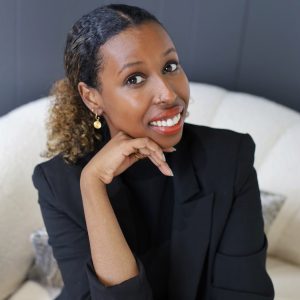
Ilhan Abdullahi is a dedicated community organizer, storyteller, and educator residing on the unceded traditional territories of the Musqueam, Squamish, and Tsleil-Waututh Nations. Committed to addressing health and social inequities, she focuses particularly on Black youth and newcomers. Drawing inspiration from her family’s journey as newcomers in Canada, Ilhan actively engages in community outreach, research, and organizing efforts to contribute to the collective liberation of the communities she is a part of. For the past 5 years, Ilhan has been working as the Health Promotion Lab Manager at RADIUS, running the ideation and business validation model programs centered on health equity. Most recently, she is currently pursuing a Ph.D. to explore the role of community organizing and social innovation in public health systems transformation.
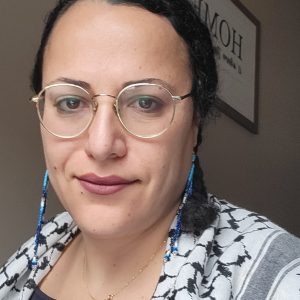
Imane Tounsi is passionate about community capacity building and the wealth of knowledge immigrants can bring to decision-making tables. Originally from Rabat, Morocco, she is an uninvited settler living and working on the stolen territories of the xʷməθkʷəy̓əm (Musqueam), Skwxwú7mesh (Squamish) & səlil̓wətaʔɬ (Tsleil-Waututh) Nations. She is a holder of a Master’s degree in International Relations & Diplomacy and a Bachelor’s in Political Science and Communications from Juniata College in Central Pennsylvania. Having worked for different non-profits in the Lower Mainland has allowed her to work closely with immigrants and refugees where she created youth-led settlement programs with a human-centered, trauma-informed approach. Currently, she holds the position of Operations Manager with the Canadian Drug Policy Coalition (CDPC) where she gets to work along some incredible humans to change the narrative around substance use and advocate for the folks experiencing systemic marginalization.In her spare time, you’ll find her building community connections, most probably over food and dance.
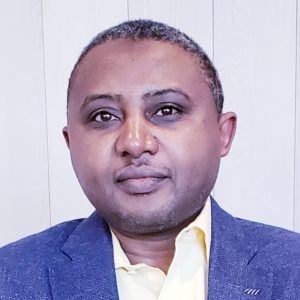
My name is Amani Bagende (He/Him). A Canadian Citizen from Burundi, graduated from the American Hotel and Lodge Institute and awarded the Leadership Certificate from the Metro Vancouver Alliance. Founder and President of Swahili Vision International Association, the non for profit organization registered in BC since 2018 with mission to promote and educate all about the Swahili Cultural Heritage. The organization have been recognized in BC Legislature and acknowledged by BC Premier John Horgan and the Premier Minister of Canada Justin Trudeau since 2019 and recently awarded certificate from BC Multiculturalism and Anti-Racism(2020 and 2021) for his effort on the Intercultural Trust and Breaking barriers and currently Swahili language is in UBC programs,the organization is working in collaboration with Aboriginal Land Trust for the new, affordable housing project for indigenous and swahili people.
The Swahili Vision International Association’s goal is to create a Swahili Culture Centre in order to serve all individuals interested in the Swahili Cultural Heritage. My passion for building a stronger community comes after my experiences working with other NGOs back in 1996 when I co-founded the primary school for refugees marginalized children and families for Kitale refugees camp in Tanzania. After immigrated in I continue to work ,assist and serve refugees/new immigrants through the Immigration Services Society of BC in 2003 as an Interpreter for English and Swahili languages and after been working for Jet Set Sport and Co-sport for the Vancouver 2010 Olympic winter games I continue my passion of serving the marginalized people from the Vancouver Downtown Eastside and discover how people in communities are facing so many challenges I decided to join other communities people to found the Burundi Community Association of BC which I ended up to serve as a co-founder and Vice President.
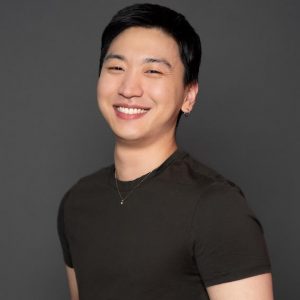
Sean is committed to challenging and dismantling systems of oppression, with a focus on creating spaces where equity and justice are prioritized. Through their experiences with forced migration and growing up in environments shaped by systemic oppression, they have come to understand that true belonging is found within communities that offer safety and truly believe in collective liberation.
Their work as an advocate and researcher is grounded in the principles of justice, diversity, equity, and inclusion. Over the years, Sean has collaborated with various community programs to confront the impacts of racism, xenophobia, homophobia, transphobia, misogyny, elitism and ableism, particularly in the context of supporting LGBTQ+ refugee claimants and addressing the mental health challenges faced by refugees in British Columbia.
As a part of RADIUS’s grant development team, Sean is committed to making this grant accessible by moving away from traditional, restrictive funding practices that reinforce existing inequalities. They advocate for eliminating rigid spending requirements, overly burdensome and ableist reporting demands, and application processes that unfairly advantage those already in positions of privilege—such as prioritizing organizations with prior grant experience under the guise of ensuring trustworthiness. Sean believes that these conventional approaches can further marginalize and suppress the potential of resilient communities. Instead, they seek to create a grant process that is approachable, equitable, inclusive, and empowering to communities that have always fought for their right to thrive.
Sean aims to contribute to the creation of equitable opportunities that address the root causes of marginalization and exclusion. They believe in the importance of designing and advocating for spaces where people are not forced to exhibit resilience in the face of oppression but are instead supported in their full humanity.
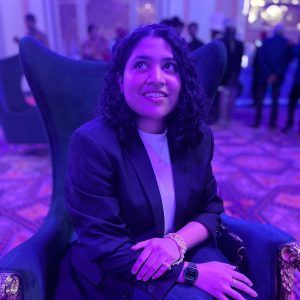
Shraddha is a passionate advocate for Equity, Diversity, and Inclusion (EDI) in the Canadian workforce. With a Master’s degree in Intercultural and International Communication and extensive experience in Marketing, her career has spanned roles in content creation, sales, client engagement, and employment services. She brings valuable grantmaking expertise to her work, focusing on supporting migrant and BIPOC communities through targeted funding initiatives. Through her involvement in the Migrant Systems Change Leadership program, Shraddha is developing a strategic plan to dismantle barriers, such as the requirement for local work experience, that hinder migrant workers’ opportunities.
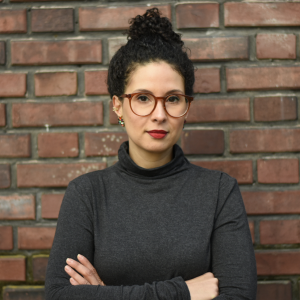
Thábata da Costa (she/her/ela) loves to support organizations and communities in building caring spaces and driving systemic change. She works on Equity, Diversity & Inclusion strategies to enable organizations to foster supportive work environments and allow individuals to thrive. She works in collaboration with a broad diversity of stakeholders to co-design and collaboratively implement initiatives to support inclusivity through knowledge mobilization, policy and organizational change.
Thábata is an expert in socioeconomic development and holds a Master’s Degree in International Studies and an MBA in International Relations. She is passionate about cultures, and new ideas and understands diversity as a great advantage in our society. In her spare time, she can be found with her nose in a book or running on a trail at Stanley Park.
The Project Team
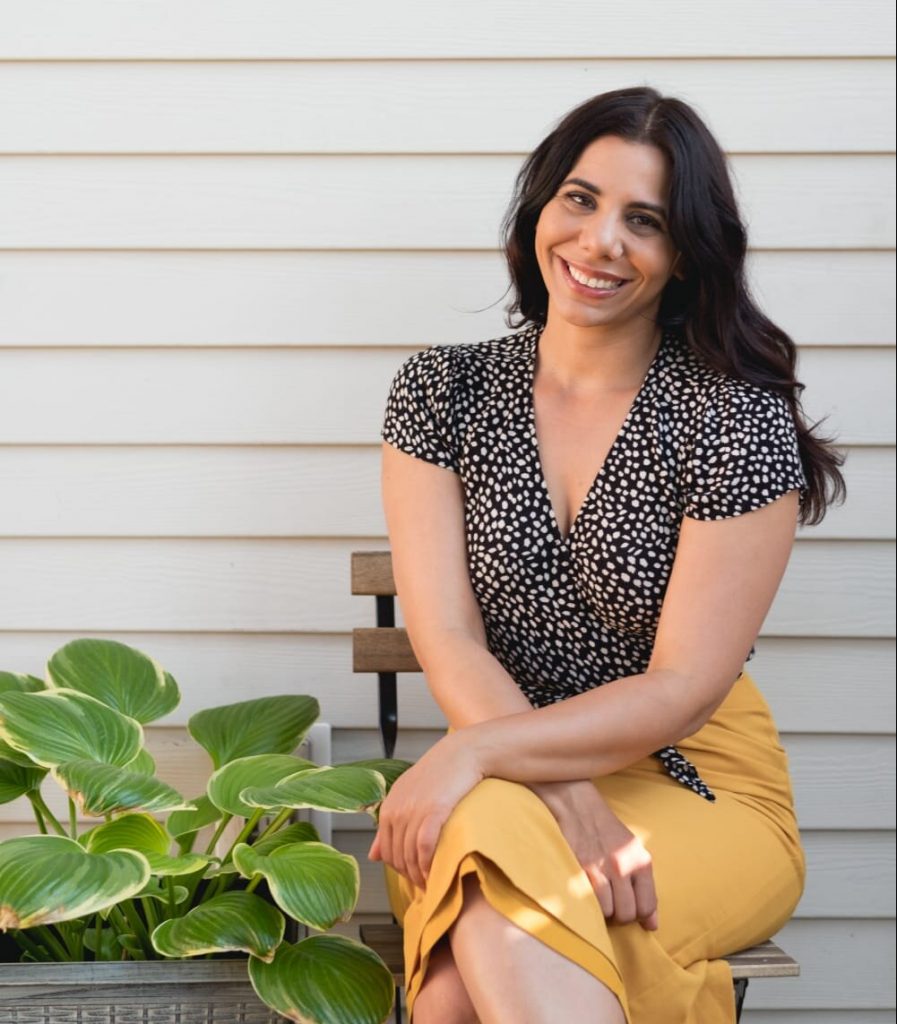
Alia Sunderji (she/her)
Alia is a social entrepreneur and lecturer at Simon Fraser University, where she teaches Sustainable Innovation and Introduction to Entrepreneurship and Innovation. Passionate about the fields of sustainability, poverty alleviation and impact investing, Alia is the Founder of Luv The Grub, an emerging social enterprise that operates at a number of levels in the food system by capturing produce seconds that would otherwise go to waste, hires newcomer refugees and immigrants through a paid employment training program and produces delicious chutneys and spreads for the local market. In addition, Alia is also the Co-Founder of Liv & Lola, a fair trade home decor business that works with artisans in rural areas of Nicaragua, Guatemala, and Thailand where employment opportunities are scarce in an effort to lift them, their families and their communities out of poverty.
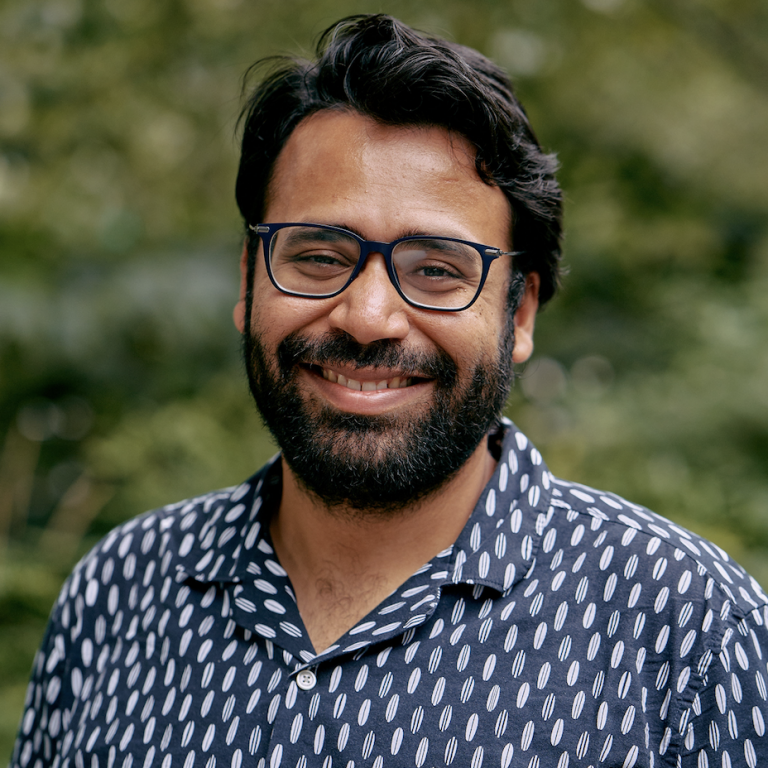
Shikhank Sharma (he/him)
I am passionate about building a world where every person has access to opportunities to better their life while becoming an integral part of a vibrant and sustainable community and an innovative economy. My work focuses on equity-centred approaches to social innovation, impact investing, venture incubation and acceleration, and capacity strengthening. I also explore ways organizations can best structure themselves for listening and collaboration. In these contexts, I have experience working with capital providers, nonprofits, universities, social enterprises, and accelerators across North America and internationally.
My journey to grow and learn led me from my home in the vibrant city of Delhi in Northern India to North America. Since then, my migration journey has taken me to many different communities and brought me to the present, where I reside on the unceded lands of the Coast Salish peoples. I am grateful for the knowledge that those around me are willing to share to help me broaden my perspective on the world in all its brilliance and juxtapositions.
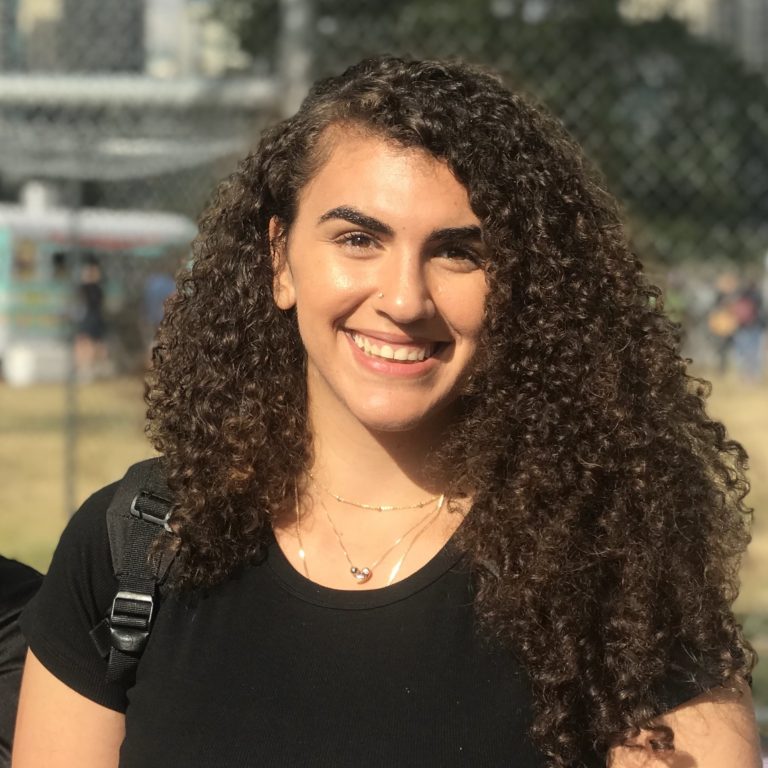
Yara Younis (she/her)
Yara (she/her) comes from a long and rooted ancestry of proud Palestinians who are Indigenous to the now-eradicated village of Berbera, Gaza. She settled on Coast Salish lands in 2018, where she has been unraveling the ways her life has been shaped by colonialism, from being born a refugee to challenging the idea of statehood. Yara’s professional and personal interests meet at the intersections of migrant justice and leadership, Indigenous sovereignty, and policy change. In her own time, Yara enjoys weightlifting, taking walks, sharing meals with friends, and cuddling with her cat.
sponsors & partners
Making Participatory Grantmaking possible
